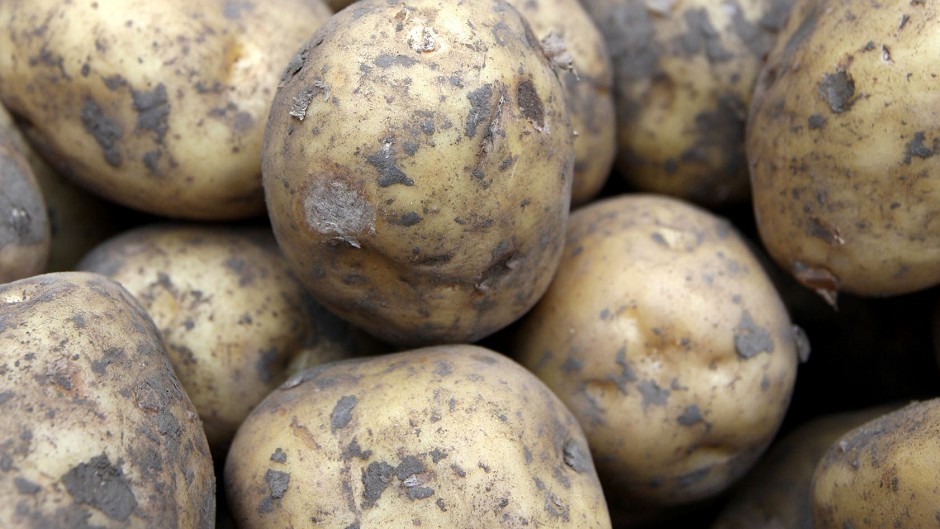Scottish tattie growers have been urged to cut back production and only grow what their contract requires in a bid to prevent another flood of produce on to the market.
The plea from the Potato Council comes during a tough time for the sector, with producers in some parts of Scotland only receiving £20-25 a tonne for some of last year’s crop.
“Two seasons of over-supply are causing great pain for our potato growers,” said the levy body’s chairwoman, Fiona Fell.
Despite an 8% drop in retail volume sales, equating to around 133,000 tonnes, across Britain in 2013, producers still planted a similar acreage of tatties in 2014, said Mrs Fell.
This, coupled with a 3% increase in yields, resulted in around 200,000 tonnes more tatties being grown last year, compared to 2013.
This level of production was no longer sustainable as there was not a domestic market for this amount of potatoes, added Mrs Fell.
“The industry has been successful in reducing supply chain waste and coupled with a drop in fresh potato consumption; this results in a new base level for production, well below what we have been used to,” she said.
She said the GB weekly free-buy price fell to a new season low of £77.43 a tonne in the week ending January 16, compared with £152.09 a tonne at the same point last year.
The price was the lowest since autumn 2009 and the lowest for that time of year since the 2002/03 season.
Growers have now been urged to rethink their strategies and as a general rule of thumb, cut back production by 10%.
Mrs Fell added that it was key farmers worked closely with their buyers and to alert the farming unions if they have experienced problems with contracts not being honoured.
“Grow what you know you are being asked to grow by the market. Grow what you know you can sell,” she added.
Brechin seed potato grower and merchant Alistair Melrose, who also serves on the Potato Council’s board, said he had already noticed growers south of the border ordering in less seed tatties.
“I have 75% sold on where we would normally be at this time of the year,” said Mr Melrose who grows around 420 acres of seed potatoes and is general manager at A J Allan Ltd.
“In Scotland people are still taking on their rented land but I think they will grow a bit less on their own land. They are scared they will lose it (the rented land).”
The industry needed to do more to get consumption up and there needed to be a higher share of the retail price given back to farmers, added Mr Melrose.
“If you take it that the retail price in the shop for some varieties is £1 a kilo, we as producers are getting paid 10p a kilo. We have a 90p difference there that needs to be distributed better,” he said. “We are not a charity case, all we are asking for is for consumers to buy more potatoes and for us to get a fairer share of the retail price.”
Laurencekirk farmer John McWilliam, who grows 160 acres of tatties at Haughhead Farm, said: “Farmers are getting so little in relation to the shop price; I’m sure it wouldn’t take a lot to give farmers a return without making much difference to the consumer. It takes very little of a price increase to give the producer a decent return.”
